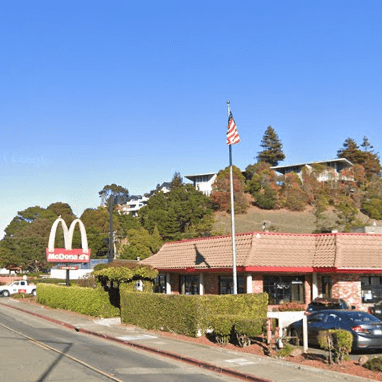
Despite the efforts last year of major food chains to block a nation-leading California law giving more power to fast food workers, the legislation (Assembly Bill 1228), backed and signed by Gov. Gavin Newsom, required fast food workers at certain restaurants earn at least $20 an hour, according to by Jeanne Kuang at CalMatters.
But the specific execution of the wage upgrade comes with some confusion. Kuang writes: “Say you work at a fast food restaurant or coffee shop that bears the name of a national chain. Under California law, you’re entitled to be paid at least $20 an hour starting Monday. Say you work at one of those stores, inside a grocery store. The grocery store, your employer, is exempt under the law. You’ll keep getting your current wages. But say you assemble burgers, scoop ice cream or prepare Frappuccinos at one of those stores, and it’s inside another store, but the bigger store isn’t a “grocery” because less than half of its revenues are made off groceries. What then?
According to the state of California, the store should be paying you at least $20 an hour, but only for the hours you work in the fast food portion of the store. If you spend part of your shift checking out customers or stocking the shelves in the rest of the store, you’re only entitled to the regular minimum wage of $16 for those hours. That’s according to an 18-item FAQ the Department of Industrial Relations published in March as California businesses prepare for the fast food minimum wage to kick in on Monday. It’s not the only situation that is confusing employers and workers alike.”
The confusion stems, according to Kuang, from a deal struck last year between the Service Employees International Union and the International Franchise Association and California Restaurant Association that included owners of fast food chain locations but exempted those who operate independent restaurants.
The law covers all fast food restaurants that belong to chains with 60 or more locations nationally, roping in the unions’ targets: McDonald’s or Burger King and their franchise owners. More than 500,000 Californians — primarily women, immigrants and people of color — work in what’s known in the industry as “limited service restaurants.” Earlier this year SEIU estimated the law will apply to roughly 3,000 employers.
The legislation doesn’t impact many Mill Valley shops. Within Mill Valley, it would impact McDonald’s, Starbucks, Peet’s, Dominos, Subway and In-N-Out Burger. The measure, known as A.B. 257, passed by a vote of 21 to 12, and was previously approved by the State Assembly.
As reported by the North Bay Business Journal, Brian Hom owns and operates two of the more than 75 Vitality Bowls across the U.S., most of which are franchises. There’s a Vitality Bowls in Mill Valley. Hom told the NBBJ Monday he already had to lay off some of his staff with only two employees working during its busiest times rather than the typical three to four workers. He has a total of 30 employees between his two stores, most of them high school and college students.
“I tell them (my employees) that I’m happy that they get to make 20 bucks an hour and they’re happy too,” Hom said. “But I also tell them I hope I can keep their hours.”
